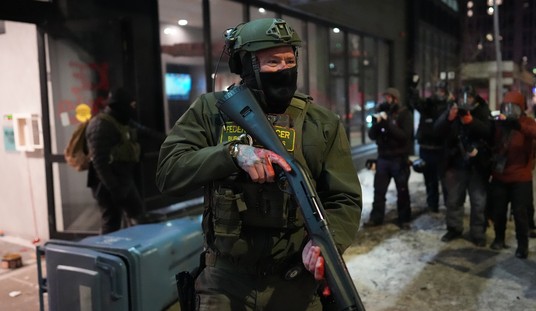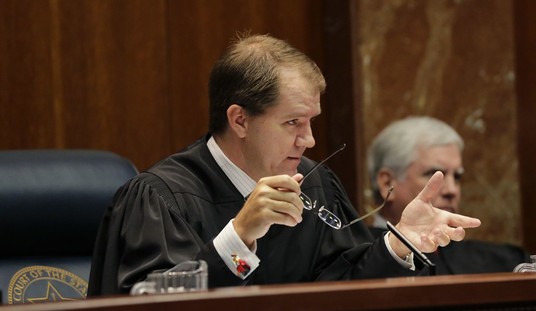A challenge to Hawaii’s ban on the open carrying of a firearm without a license received another day in court on Thursday, as attorneys for the state and a resident challenging the law squared off in front of an en banc panel of judges on the Ninth Circuit Court of Appeals. The case of Young vs. Hawaii is an important case when it comes to the right-to-carry, and a three judge panel on the court of appeals has already ruled that the law violates the constitutional rights of residents by requiring them to demonstrate a “justifiable need” to carry beyond the right of self-defense.
The state of Hawaii decided to appeal that decision to a broader panel of Ninth Circuit judges rather than take the case directly to the Supreme Court, and attorney Neal Katyal, a former acting Solicitor General in the Obama administration, represented the state in the oral arguments held on Thursday. Katyal claimed that Hawaii’s restrictive licensing of open carry doesn’t amount to an outright ban on carrying, even though the average resident is precluded from the practice.
Arguing before an 11-judge en banc panel Thursday, Katyal explained that Hawaii state law and the County of Hawaii’s regulations do not limit open-carry permits to security guards. He cited the Hawaii Attorney General’s 2018 guidance stating that an applicant can obtain an open-carry permit by demonstrating “a need to carry a firearm for protection that substantially exceeds the need possessed by ordinary law-abiding citizens.”
“Individuals can carry firearms if they have good cause,” Katyal said. “That is what Hawaii’s law actually is.”
Katyal implored the judges not to focus on data showing that only security guards have obtained open-carry permits. The court must instead look to the plain text of the statute, he said.
Ninth Circuit Judge Ryan Nelson, a Donald Trump appointee, said he interprets the text of the county’s regulation as only allowing security guards to obtain open-carry permits.
“You would agree that the regulation itself is unconstitutional, meaning the Second Amendment would not permit that,” Nelson asked.
Katyal replied that the court need not reach the question of constitutionality because any rule that would limit permits to security guards “is flatly inconsistent with what Hawaii’s state law is.”
The state of Hawaii is trying a legal strategy very similar to what New York City did in the recent case NYSRPA vs. New York City; attempting to change a law after a court challenge in an attempt to claim that the law in question doesn’t violate the Second Amendment. The 2018 guidance from the state’s Attorney General theoretically allows someone who’s not a security guard to obtain a license to openly carry a firearm, but as Katyal himself was forced to admit, no citizen has actually obtained a license to carry.
Katyal argued that the state’s prohibition on open carrying dates back more than 150 years, and should be upheld as constitutional based on the “longstanding” nature of the statute.
Despite the long history lesson, Ninth Circuit Judge Sandra Ikuta, a George W. Bush appointee who joined O’Scannlain in ruling against Hawaii’s open-carry restriction in 2018, seemed unimpressed.
“The history — which I find very ambiguous — your argument as to history is merely that this right to bear arms is not a core right so that it can be restricted. Is that correct,” Ikuta asked.
“No,” Katyal replied. “You can see it as a core right, but it’s always been subject to a good cause restriction in every time period.”
The Ninth Circuit has already proclaimed that there is no constitutional right to carry a concealed firearm in its decision in a case called Peruta vs. San Diego. In that case, a three judge panel originally declared that “good cause” requirements to carry a concealed firearm in San Diego violated the Second Amendment, but Judge Diarmuid O’Scannlain’s opinion was undone by an en banc panel that reversed the decision back in 2016.
Since the Second Amendment clearly protects the right to both keep and bear arms, and the Ninth Circuit has said you don’t have a constitutional right to carry concealed, then the open carrying of firearms must be protected, right? That was the logic that O’Scannlain when he wrote the majority opinion in the Young case back in 2018; you can ban one form of carrying for the average citizen, but they must have some means of exercising their right to bear arms.
Attorney Alan Beck, who’s representing George Young in his challenge to the Hawaii law, argued on Thursday that even under the 2018 guidance from the state’s Attorney General, the right of the average citizen to carry is being violated because of the “unbridled discretion” given to police chiefs to approve or deny the licenses.
One of the biggest issues in the case is the “justifiable need” or “good cause” requirement to obtain a license. Several other appellate courts, including the D.C. Circuit Court of Appeals, have struck down similar requirements for concealed carry licenses as a violation of the Second Amendment. With a split in the lower courts, the case would seem ripe for an eventual review by the Supreme Court if the en banc panel decides that Hawaii’s open carry law doesn’t violate the Constitution. If the Ninth Circuit upholds O’Scannlain’s opinion in the Young case, it’s unclear whether the state would appeal the case to the Supreme Court or reluctantly take the loss and adopt a “shall issue” standard for the open carry licenses.
The en banc’s panel likely won’t come down until after the election in November, so what the Supreme Court will look like by the time justices have the opportunity to hear the Young case is anyone’s guess. If nothing else, Thursday’s oral argument was another reminder of the importance of the Supreme Court in this year’s election, and why the vote in November could determine the future of the Second Amendment jurisprudence for decades to come.









Join the conversation as a VIP Member